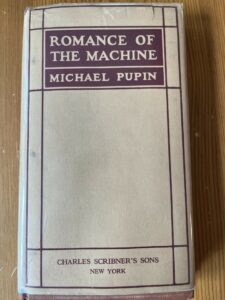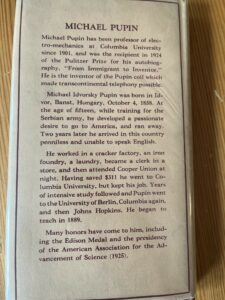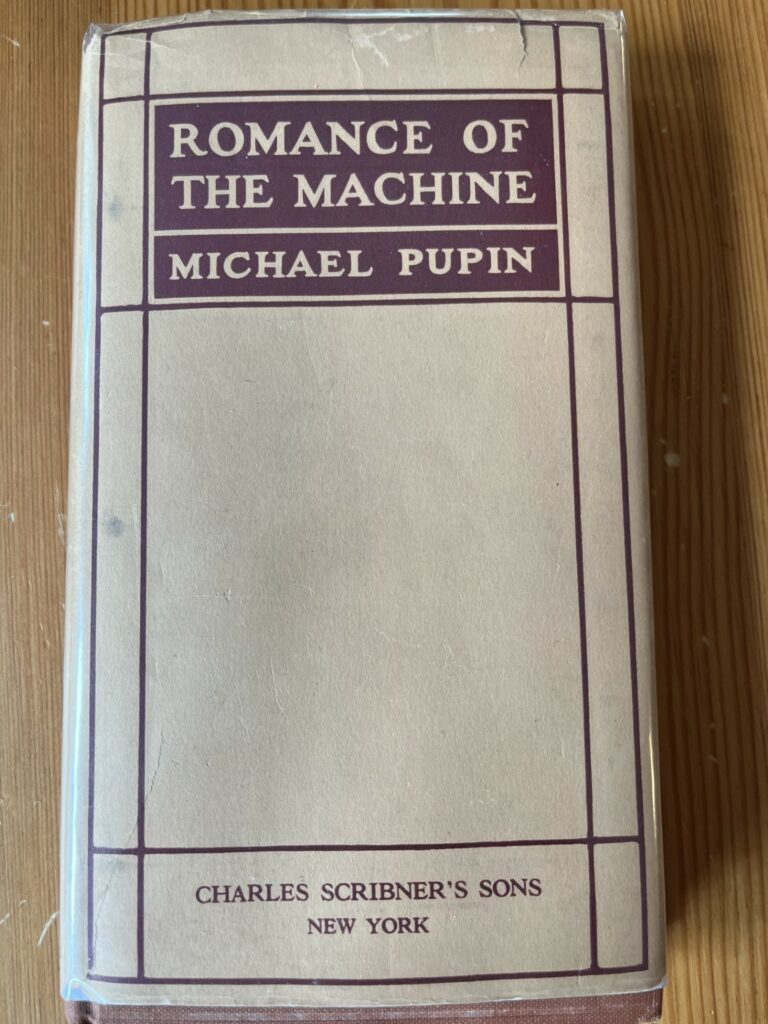

The Machine Civilization: One View
By
Branko Terzic
Those alive today may view the remarkable technical developments of our life experience in the late 20th century and early 21st century with pride and admiration. The proliferation and improvements in power of the personal computer and the related expansion of the internet along with recent announcements in artificial intelligence surely rank as major technological advancements. Or do they?
Professor Michael I. Pupin’s 1930 book Romance of the Machine reminds us that perhaps the last decades of the 19th century and early decades of the 20th century were more significant periods of innovation and invention compared to today. Consider that it was only a century ago that society experienced:
- the introduction of the electricity grid replacing human and animal labor,
- creation of a national telephone network,
- network radio broadcasting for entertainment, news and sports
- wireless telegraphy of messages and information worldwide
- development of internal combustions engine cheap enough for all to have an automobile and
- powerful enough to enable mankind to fly the skies and span the oceans and continents
Pupin himself contributed to these new technologies with patents enabling long distance telephone and the radio tuner dial. His book was a reply to European criticism that Americans had adopted a “Machine Civilization” based on “sordid materialism.” These critics charged that Americans had “...created the worship of a heathen idol – ‘the machine’” These arguments seem quaint and distant from our perspective almost a hundred years later. We will set them aside for a moment.
What may be more interesting to us today is how Michael Pupin viewed the introduction of the new technologies based on fossil fuel use.
“Modern science has revealed that there are other blessings which solar radiation has stored up and is storing up for the benefit of man. Among these blessings are the stores of energy in wood, coal and oil. We know today that this energy was destined to mould the structure of human civilization.”
Pupin’s view was that this stored energy from the sun would power the machines necessary to fulfill the “Consolidation of the Union, the dream of Washington and Lincoln…” the electrically powered telephone would be the network required “…just “as the human body requires the network of its nervous system for its coordination.” Due to the inventions of the American “machine” Pupin states that “Distance and time in its [USA] vast territory have no longer the meaning which they have in the vast territories of Russia and China.”
This consolidation is also affected by the new “machine” of the internal combustion engine where by 1930”… over twenty-five million automobiles were in the hands of the American people” a “striking exhibition of our economic democracy.”
The automobile, fueled by the sun’s stored energy, is singled out as the machine which produced “the most revolutionary changes in American life.” Pupin, a New Yorker teaching at Columbia University writes that “The roads are blocked for many miles and the endless string of automobiles taking their owners for a Sunday afternoon outing makes one believe that every family in New York has an automobile and that they are all out for a pleasure drive.” Yes, that’s a rather romantic view of the automobile but it not a mistaken view of the mobility of the American public.
Looking back, it was the 20th century which produced the greatest discoveries and inventions and not our own era. Those 19th and 20th century technologies were based on the sun’s stored energy in fossil fuels. We have enjoyed the benefits of those technologies, but we are now experiencing the side effects of our beneficial use of fossil fuels. Thus, we need again to look to the sun for our energy but this time directly from solar and wind sources and not our stores of sun produced fossil fuel. Where economically feasible we need nuclear energy as well.
The Honorable Branko Terzic is a former Commissioner on the U.S. Federal Energy Regulatory Commission and State of Wisconsin Public Service Commission, in addition to energy industry experience was a US Army Reserve Foreign Area Officer ( FAO) for Eastern Europe (1979-1990). He hold a BS Engineering and honorary Doctor of Sciences in Engineering (h.c.) both from the University of Wisconsin- Milwaukee.
#BrankoTerzic #energy #regulations #experience #research #future #opportunity #strategy #management #people #electricity #power #utilities #renewables #RenewableEnergy #energysector #oilandgas #powergeneration #energyindustry #oilandgasindustry #sustainability #oil

